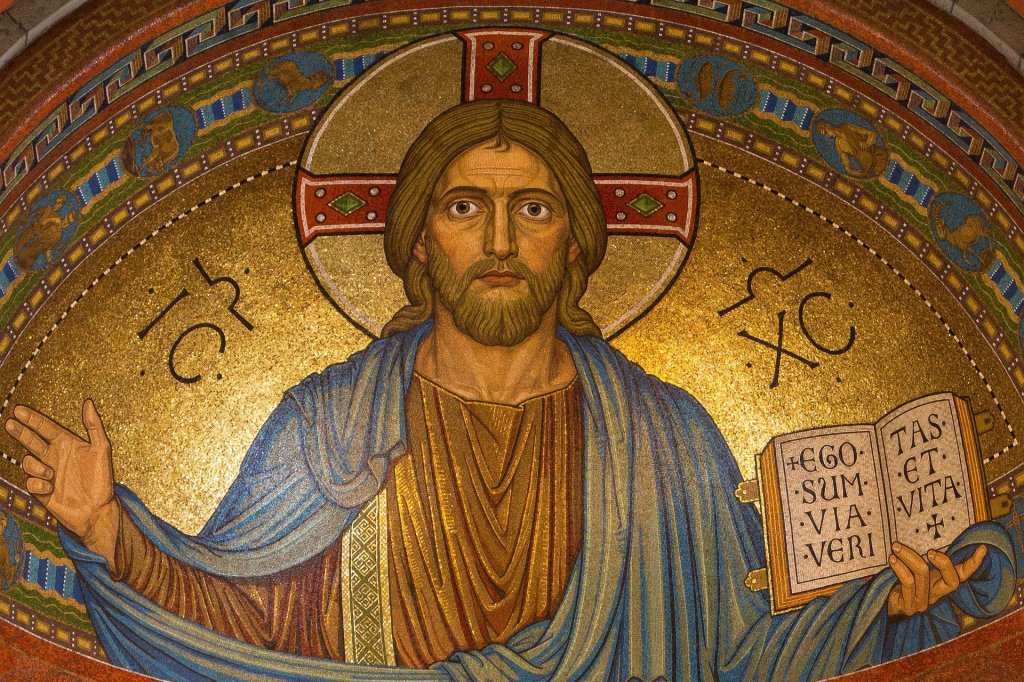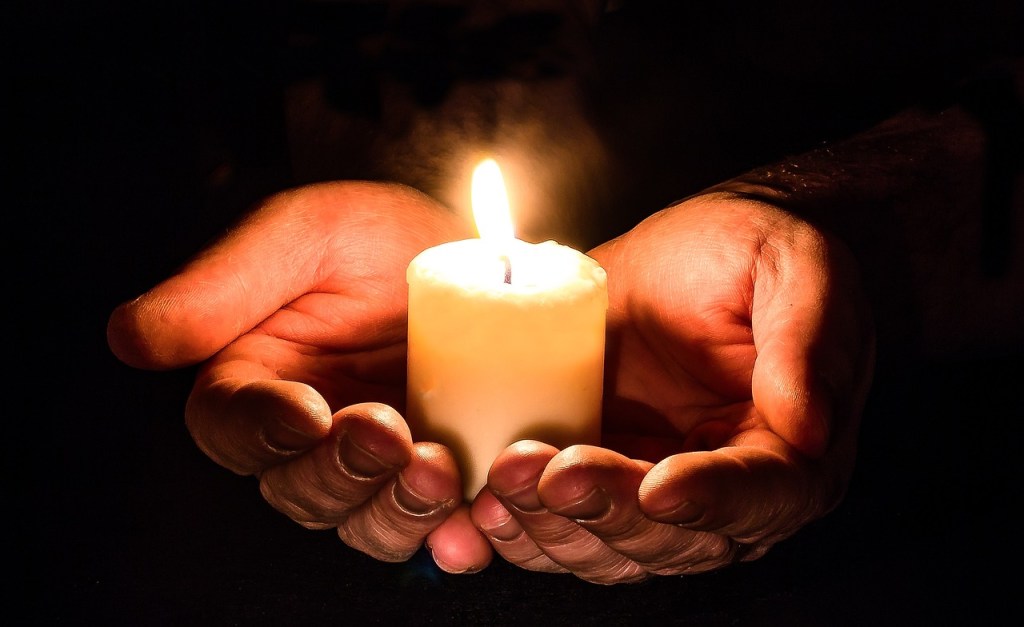
Readings
1 Samuel 3:1-10
Now the boy Samuel was ministering to the Lord under Eli. The word of the Lord was rare in those days; visions were not widespread.
2 At that time Eli, whose eyesight had begun to grow dim so that he could not see, was lying down in his room; 3 the lamp of God had not yet gone out, and Samuel was lying down in the temple of the Lord, where the ark of God was. 4 Then the Lord called, ‘Samuel! Samuel!’ and he said, ‘Here I am!’ 5 and ran to Eli, and said, ‘Here I am, for you called me.’ But he said, ‘I did not call; lie down again.’ So he went and lay down. 6 The Lord called again, ‘Samuel!’ Samuel got up and went to Eli, and said, ‘Here I am, for you called me.’ But he said, ‘I did not call, my son; lie down again.’ 7 Now Samuel did not yet know the Lord, and the word of the Lord had not yet been revealed to him. 8 The Lord called Samuel again, a third time. And he got up and went to Eli, and said, ‘Here I am, for you called me.’ Then Eli perceived that the Lord was calling the boy. 9 Therefore Eli said to Samuel, ‘Go, lie down; and if he calls you, you shall say, “Speak, Lord, for your servant is listening.”’ So Samuel went and lay down in his place.
10 Now the Lord came and stood there, calling as before, ‘Samuel! Samuel!’ And Samuel said, ‘Speak, for your servant is listening.’
John 1:43-51
43 The next day Jesus decided to go to Galilee. He found Philip and said to him, ‘Follow me.’ 44 Now Philip was from Bethsaida, the city of Andrew and Peter. 45 Philip found Nathanael and said to him, ‘We have found him about whom Moses in the law and also the prophets wrote, Jesus son of Joseph from Nazareth.’ 46 Nathanael said to him, ‘Can anything good come out of Nazareth?’ Philip said to him, ‘Come and see.’ 47 When Jesus saw Nathanael coming towards him, he said of him, ‘Here is truly an Israelite in whom there is no deceit!’ 48 Nathanael asked him, ‘Where did you come to know me?’ Jesus answered, ‘I saw you under the fig tree before Philip called you.’ 49 Nathanael replied, ‘Rabbi, you are the Son of God! You are the King of Israel!’ 50 Jesus answered, ‘Do you believe because I told you that I saw you under the fig tree? You will see greater things than these.’ 51 And he said to him, ‘Very truly, I tell you, you will see heaven opened and the angels of God ascending and descending upon the Son of Man.’
Sermon
God is a God who calls. Sometimes God calls us directly – like Samuel and Philip. Sometimes God calls us through a friend. But God is a God who calls us to join in God’s adventure of love, grace, healing and hope. Like Samuel, Philip and Nathanael, are you ready to answer that call?
The trouble however can sometimes be hearing God in a very noisy world. So many things demand our attention: the news, advertisements, the joys and sorrows of the world, of our family and friends, the tasks that need done, the alarms, the pings on our phone, the letters and emails asking us to do more, more, more…
It is overwhelming to just list these things. How on earth are we to hear God’s calling voice above all of that?
One of my birthday gifts this week was a biography of a young woman called Etty Hillesum. Etty grew up in the Netherlands in the years before the war. She had led a very emotionally chaotic early life, but in 1941 she meets a psychotherapist who helps her unravel that chaos. As part of her therapy, he advises her to keep a diary. Etty was of Jewish heritage, although not in any sense religious as her diary opens – in her early entries, God is an embarrassing word she will only write in quote marks. But her Jewish background means that under Nazi occupation, she experienced a double horror – the horror of the occupation of her homeland and the horror of persecution for her identity. Over two and half years, she writes many diary entries and letters, which initially chronicle her journey from chaos to wholeness, but then go on to tell of her attempts to stay human, to resist hatred and to find joy in a rapidly deteriorating situation.
How does she do it? Well, without knowing entirely what she was about Etty became a contemplative – that is, someone who listens to and notices the things of God. She describes how one day, without knowing how to explain it, she finds herself kneeling on the matting in her bathroom and just listening to the truest part of herself – a still centre in her heart. It takes her while to call it prayer. Over time she does this kneeling down more and more, and finds that in this stilling, in this listening, she finds a strength to truly live in the stormy broken world that surrounds her.
Another thing that sustains her is paying attention to the realities. She doesn’t try to deny the reality of the horror that surrounds her – she is too honest and clear-sighted to entertain that. But she makes time to notice and be nourished by other realities too. For her the realities that nourish her are beauty and, in particular, nature. If she sees a particularly beautiful flower or tree, she will pause to fully appreciate it, she will store up its glorious reality in her heart to offset the ugly realities she is forced to experience day after day.
In time, Etty ends up working for the Council of Jews at the Westerbork internment and transit camp, and her innate life and joy in that place of bleakness and fear brought encouragement to many. Towards the end of the summer in 1943, the Council of Jews was disbanded and Etty became a camp resident. She was transported to Auschwitz in September 1943 and died in the November, just a few weeks before her 30th birthday. Incidentally, her birthday is 15th January – tomorrow. Etty had been preparing herself for this outcome for months, and didn’t quail in the face of her transportation to the death camp. In her last postcard, thrown out of the train that took her from Westerbork, she wrote “we left singing…”. The Holocaust might kill this young woman but it could not defeat her.
Our world isn’t quite a bleak and as brutal as the one Etty experienced, and yet to live well in it, to hear God’s call to love, to life, to justice, generosity and hope, we too could do well to follow her example. How might we make space to be still and listen; not talk, not present God with a to-do list, but just listen to what God – who loves us so dearly – wants to say to us? We may not find that kneeling down works for us. We might sit in the sunshine in a favourite chair, light a candle, go for a walk. And also, like Etty, how might we make space for the other realities in our world – the things that are beautiful and true and kind. How might we notice them, dwell on them, store them in our heart and allow them to nourish us in a world which is too often bleak, selfish and violent. Sitting in silence or noticing a flower might seem like a pretty poor effort against the problems of the world, but as Etty found, they might give us the inner spiritual resources to be people of love and encouragement, people of hope, people of change.
And I cannot end this sermon without mentioning one of my favourite lines in scripture. Nathanael’s response when Philip tells him about Jesus: Nazareth? Can anything good come from Nazareth?! It reminds us that the good things of God can very much be found in unexpected places. So we might not hold out much hope of finding God in a place or a situation or a person, but God frequently surprises us. Some of us, like Nathanael, are natural cynics, but like him, let us hold it lightly and be open to goodness we can’t predict.
So, make time to listen, make space to hear, take time to notice the call of God even in this world of noise and violence. May that call enable us to be people of peace, of love and of generosity whose tiny acts of kindness may yet transform everything.








